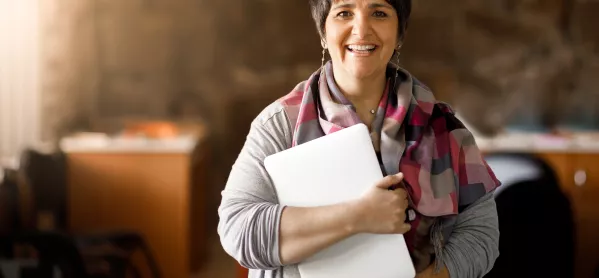I began to develop the notion that something was off after the mid-term break, and this feeling accelerated after the clocks had gone back at the end of October. Of course, everything is different this year, but this absence wasn’t related to face masks, revolving class clientele or the constant smell of hand sanitisers. The sensation was like a hair stuck in the back of my throat: unreachable but equally something you can’t ignore.
It eventually occurred to me that this numbness was due to the lack of joy on the school premises. It feels like the clocks have not gone back just one hour but by 50 years to the grey 1970s and the Winter of Discontent. Simple pleasures have evaporated. It’s much harder to have a laugh if you can’t tell if the other person is laughing under their face mask and nor are pranks feasible under social distancing guidelines. Wearing a colleague’s name lanyard as they frantically search for it is only going to raise a lecture on cross-contamination, rather than an exasperated smile.
How coronavirus has taken the joy out of school
Ironically, I think Christmas has highlighted the absence of joy - even before John Swinney decided that teachers in Scotland could all play Undetected Covid-Symptom Roulette on Christmas Day with our ageing relatives - but it has also made painfully clear how much that sensation is important to our daily working day. A lot of joy is spontaneous in teaching, and while Zoom Christmas nights out and virtual secret Santas are bold attempts to bring back joy, for me they are just a bit too contrived.
Christmas: ‘Close schools earlier or breach teachers’ rights’
Opinion: ‘Getting through all this might be education enough’
One positive from Covid? Pupils arriving in PE kit
More than an absence of fun that drags down the mood, I think the real cause is the lack of work satisfaction. In a normal school year, October and November would be when teachers are hitting their stride but this time they are not feeling that psychological reward of seeing students’ progress. It’s really hard to make the connections and build a foundation of teaching when you have to stay two metres distant and can’t touch their jotters. And I think what our current low mood highlights is that one of the main reasons why we teach is to feel good.
When the Nazis left Paris at the end of the Second World War, the cinemas were able to screen all of the American movies that had been backlogged due to the conflict. A teenage François Truffaut, who would go on to become a legendary filmmaker of the French New Wave, went to the cinema three times a day for months to catch up on all he had missed - a period he described as the most joyful of his life.
It’s this image of deferred joy that I picture when I think of how things will be when the world finally returns to normal.
Gordon Cairns is an English and forest school teacher based in Scotland
